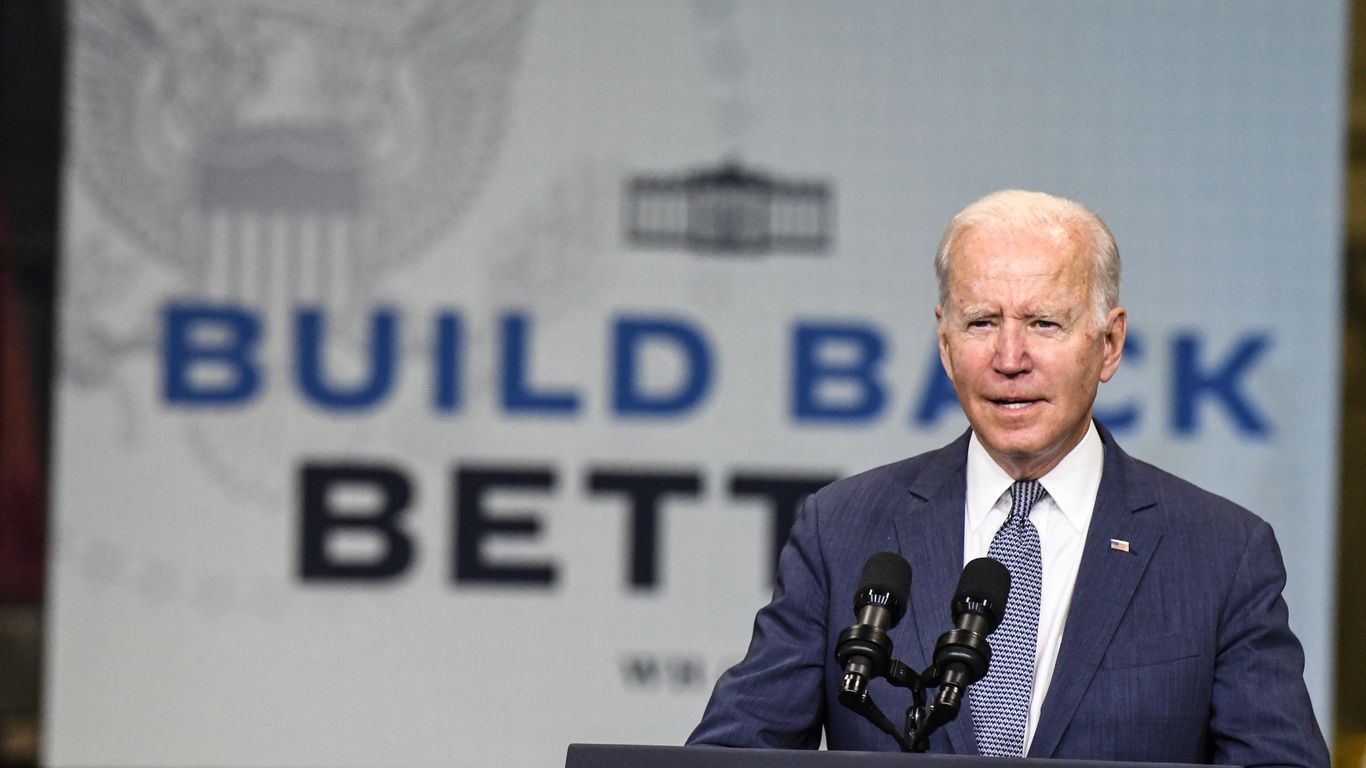The White House is privately telling lawmakers the climate portion of President Biden’s roughly $2 trillion social spending plan is “mostly settled” and will likely cost more than $500 billion, two sources familiar with the talks tell Axios.
Why it matters: A price tag of $500 billion to $555 billion is a huge number and, if it holds, would likely be the single biggest component of the sweeping package. It also isn’t far off from the roughly $600 billion proposed when the bill was expected to cost $3.5 trillion.
- The significant investment underscores the level of commitment Democrats are making to climate change mitigation.
What we’re hearing: Sen. Brian Schatz (D-Hawaii), a key progressive involved in the Senate’s climate talks, also told Axios the bill will cost at least $500 billion.
- “Everything else is getting a massive haircut, but this isn’t,” Schatz said.
- “This will be, just as a matter of fact, the biggest climate bill in human history. At least half a trillion dollars. That’s a pretty good story to tell at the Conference of Parties (COP26),” he added.
The 2021 United Nations climate conference convenes next week in Glasgow, Scotland, and President Biden is attending.
- As Axios’ Andrew Freedman notes, having a big climate portion is essential for getting the broader social safety net expansion passed in the House. Given climate is a key priority among progressives, a $500-billion-plus price tag should help.
Driving the news: The remainder of the climate section still under negotiation focuses on how to spread around the $150 billion initially slated for the Clean Electricity Performance Program (CEPP).
- That program was nixed due to opposition from Sen. Joe Manchin (D-W.Va.). He chairs the Senate Committee on Energy and Natural Resources, which will determine how to spend the leftover funds.
- Sen. Ron Wyden (D-Ore.), chairman of the Senate Finance Committee, told Axios he expects negotiators will devote that money to energy transmission and storage.
- The White House hosted roughly a dozen climate advocacy group leaders on Monday to discuss this section of the bill, a source familiar with the meeting told Axios.
Details: The following provisions are expected to be included in the bill, according to a source familiar with the negotiations:
- New grants and loans to support industrial sector decarbonization, in addition to expanding relevant tax credits to support this goal.
- Manufacturing credits to help grow domestic supply chains for solar, offshore, and onshore wind. Some of those credits will be targeted to the auto and energy communities.
- Expanding access to rooftop solar and home electrification.
- Expanding grants and loans to rural co-ops to boost clean energy and energy efficiency.
- Expanding grants and loans in the agriculture sectors to help them shift to clean energy providers with fewer greenhouse gas emissions.
The big picture: The COP26 is a huge motivation for Biden and Democratic leaders pushing for a deal this week on the overall framework for his social spending bill.
- If Biden walks into Glasgow without an agreed-to framework, it would undercut his credibility in global climate talks with world leaders.
- He’d get an added political boost if the House also joined the Senate in passing the $1.2 trillion bipartisan infrastructure bill before he heads overseas.
